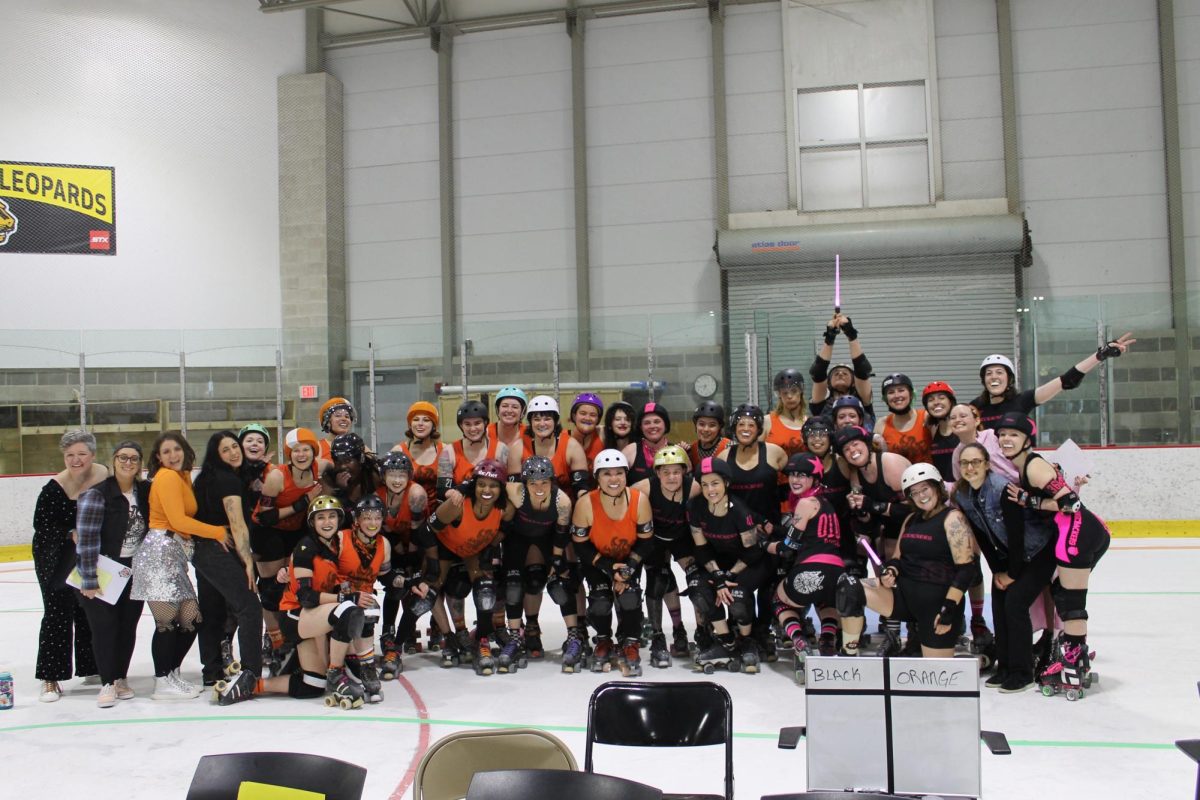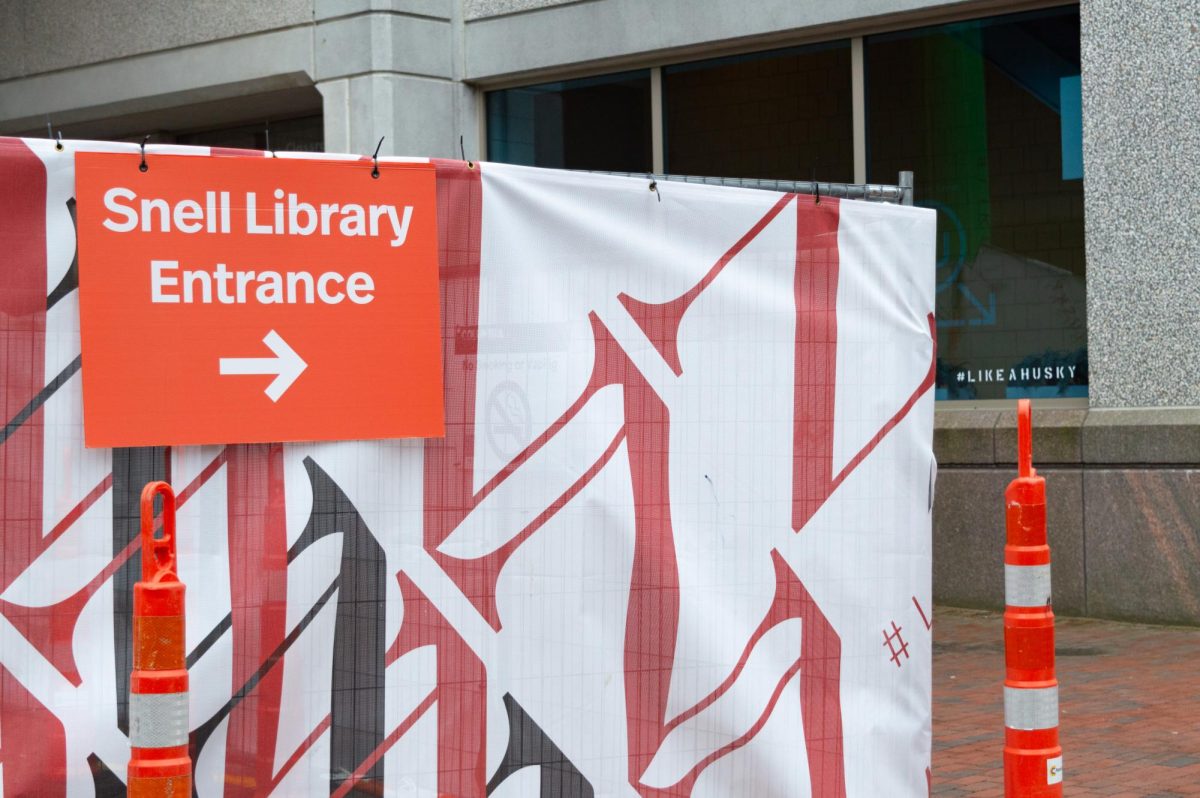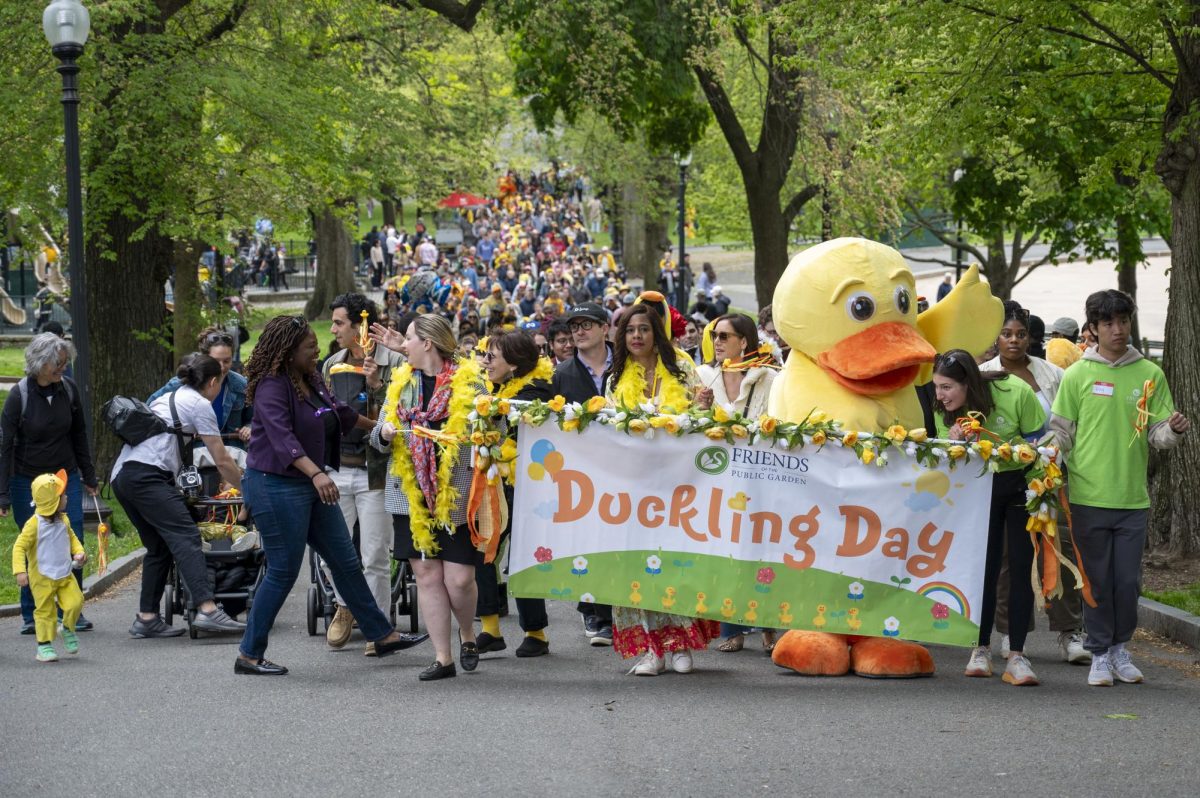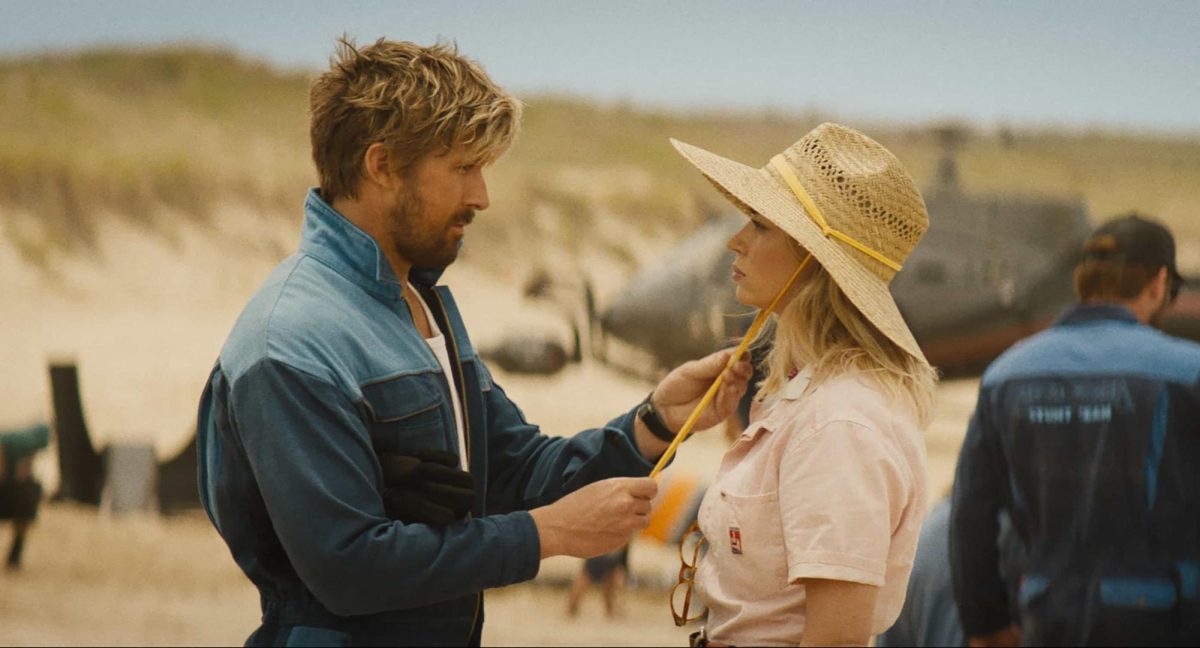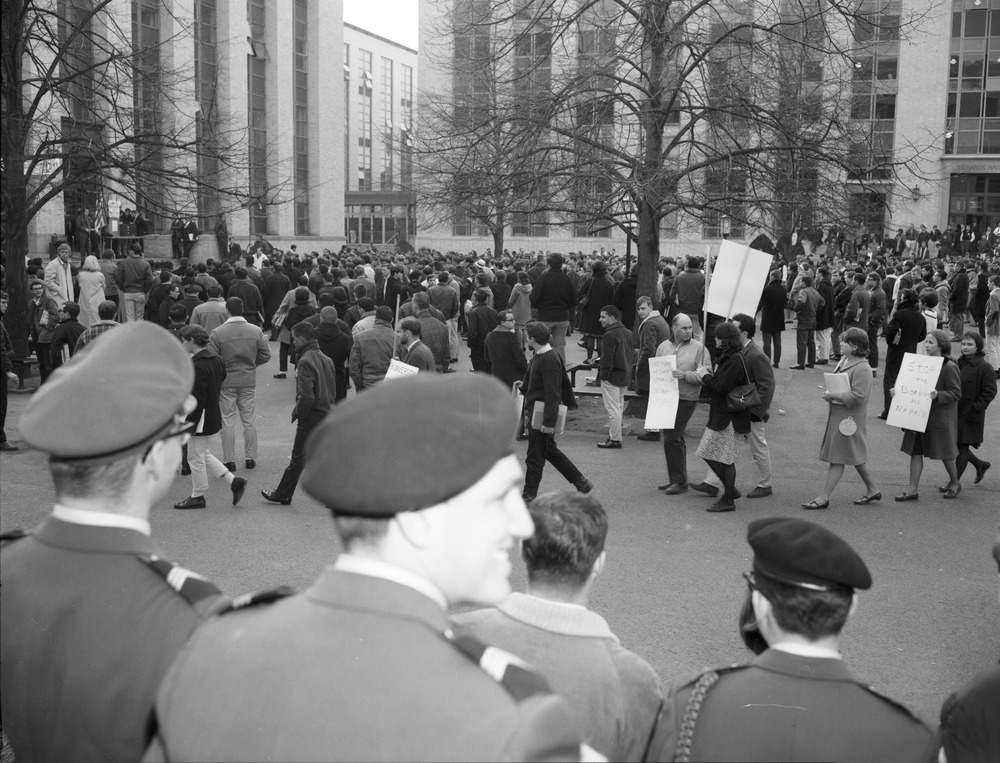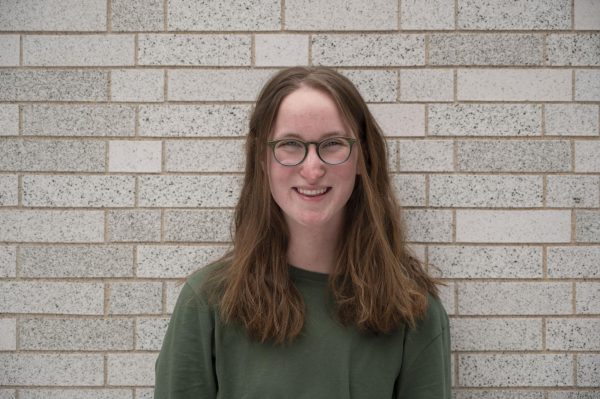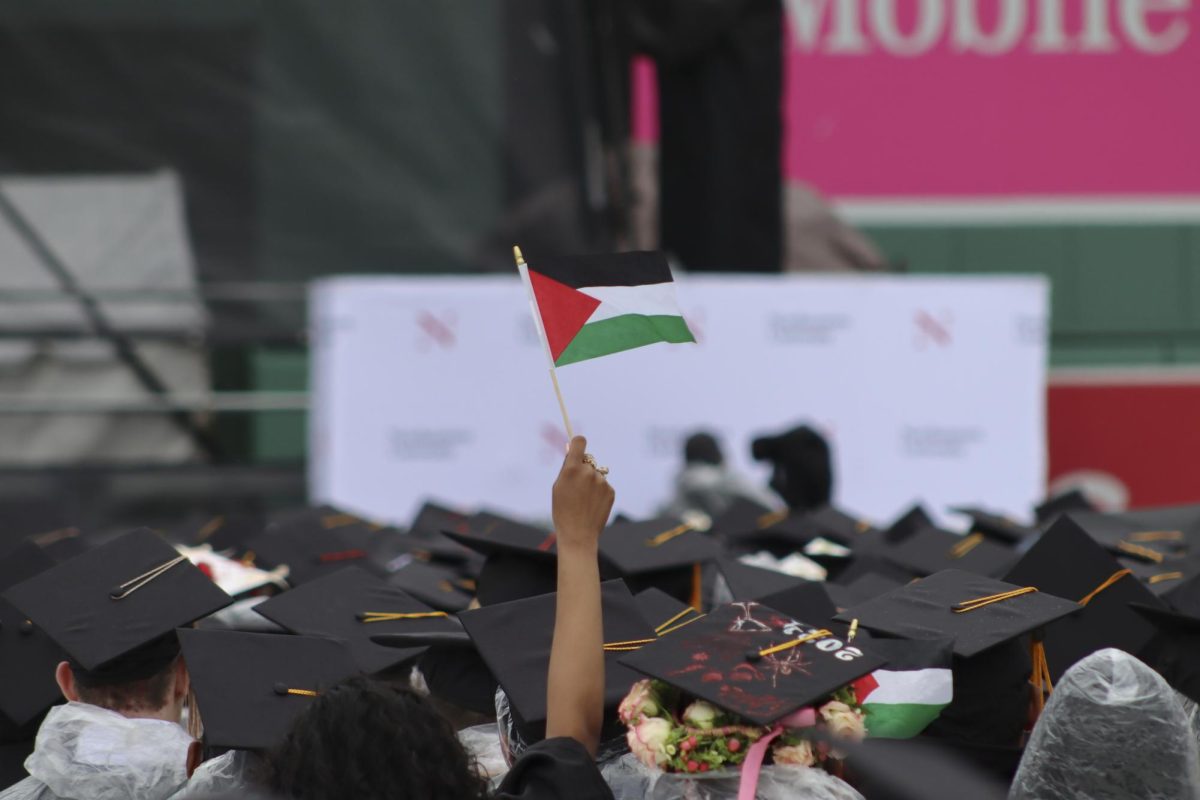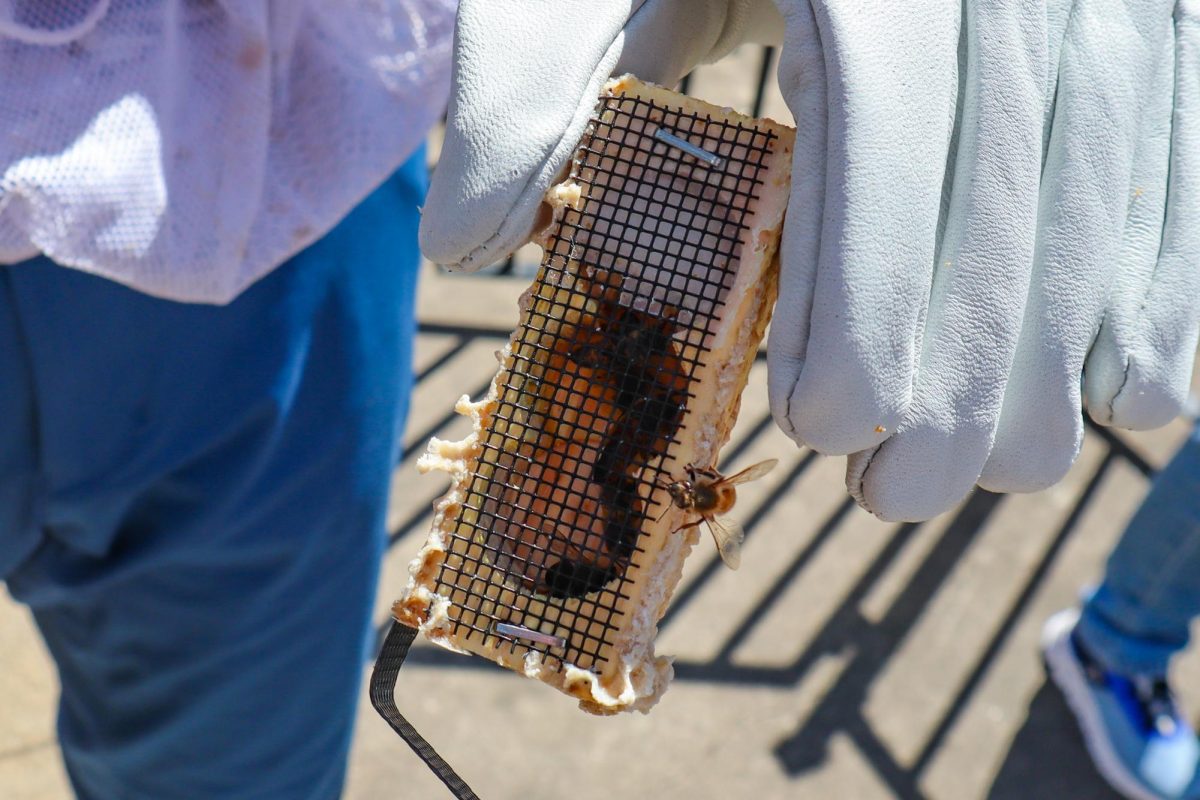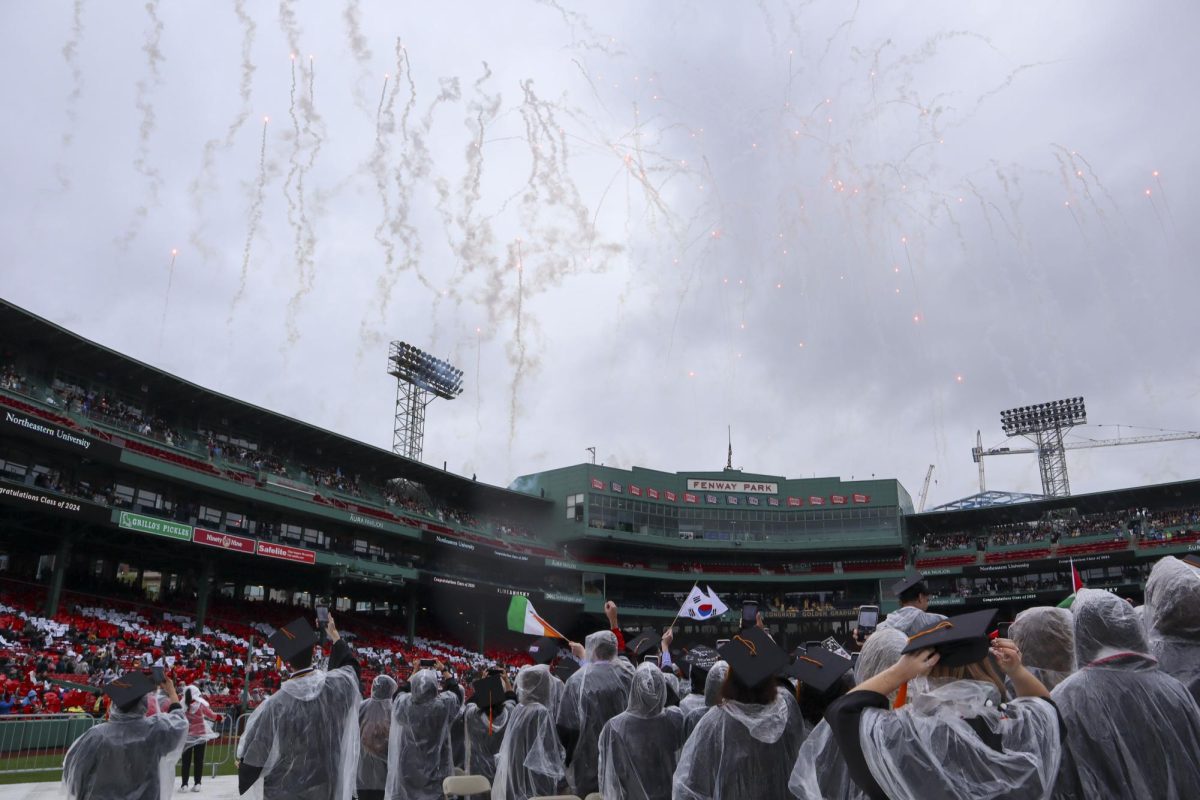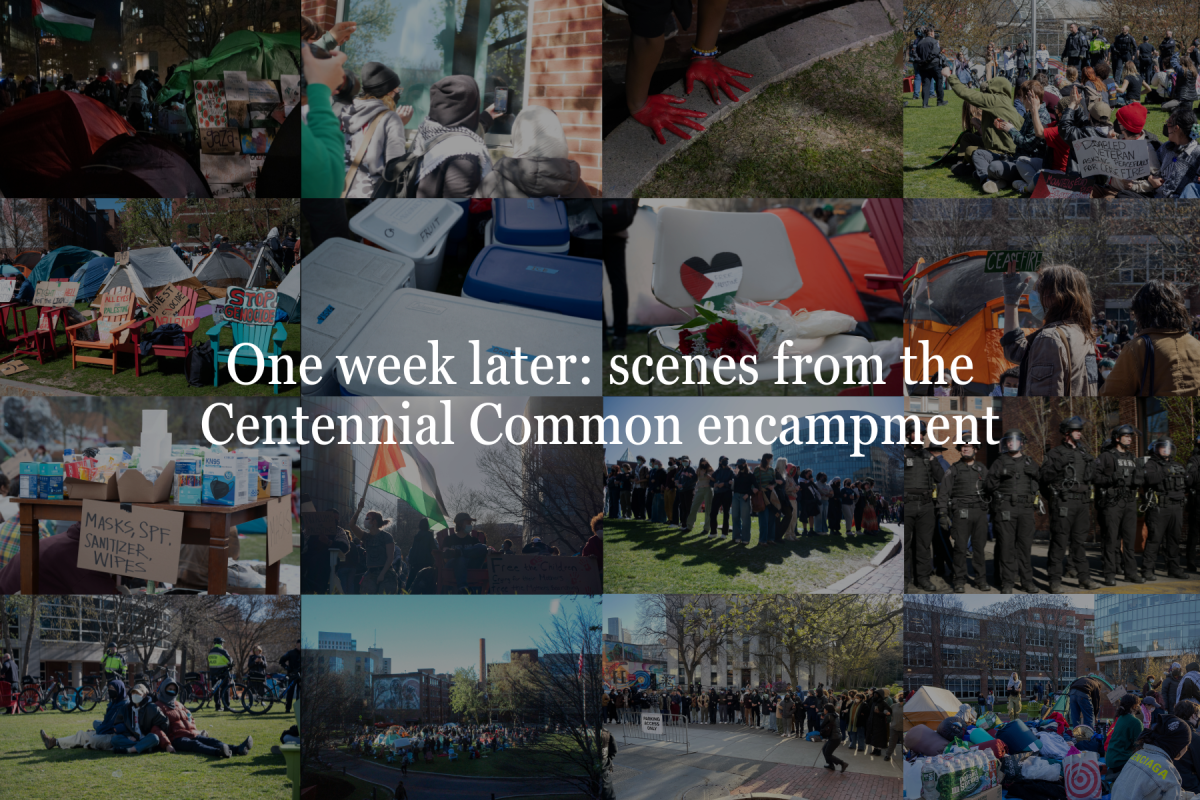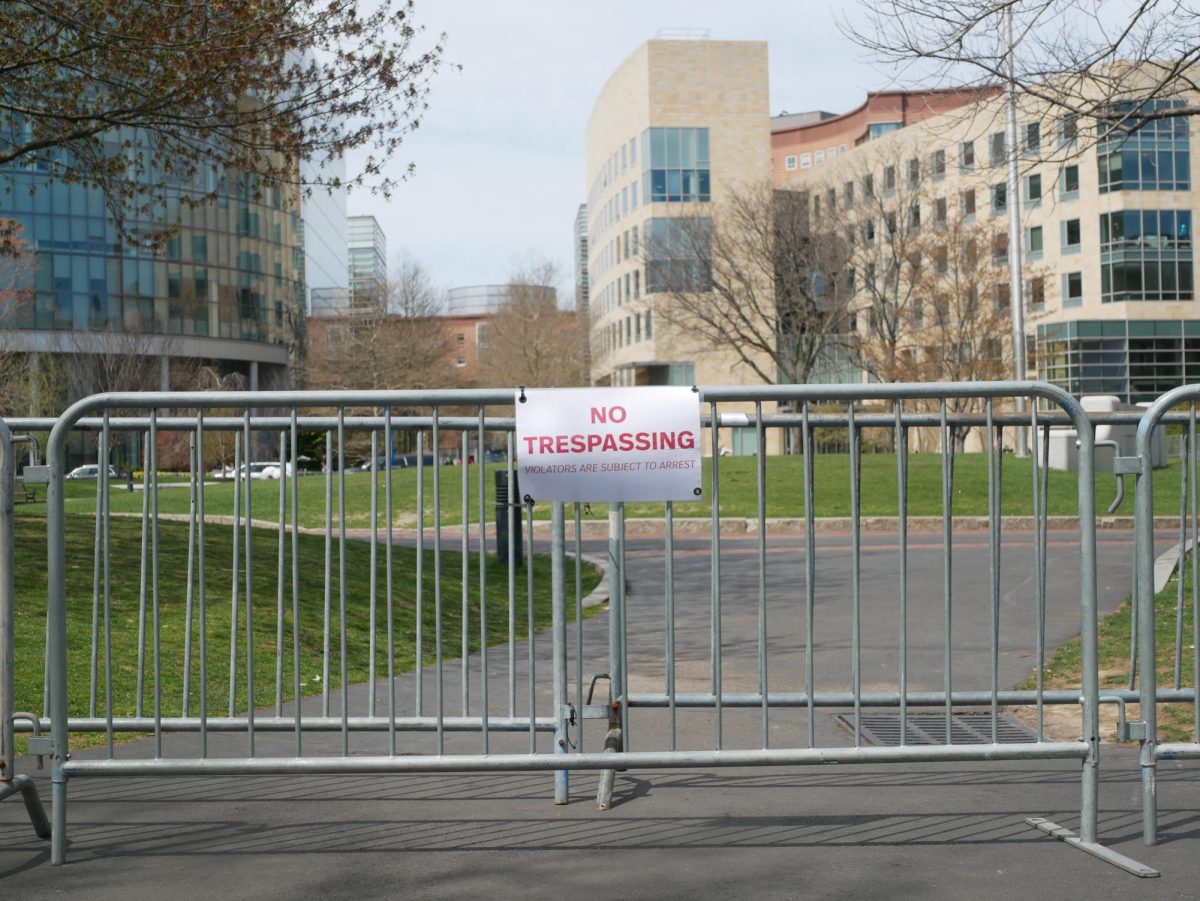On April 25, Northeastern students joined a global movement unfolding on college campuses. Through protest, students sought to replicate the disruption to the lives of Palestinians in Gaza as Israel continues its military campaign in the region following Hamas’ Oct. 7 attack. For almost 48 hours, students occupied tents on Centennial Common, living off a stockpile of food and supplies donated by participants and outside community members and sharing supplies like blankets and chargers.
Throughout their encampment, protesters chanted, prayed, danced and banded together, garnering the attention of local and national media outlets. Ultimately, the demonstration ended April 27 with the arrest of 98 people — including 29 students and six faculty and staff.
The university’s decision to send in police to arrest protesters garnered national criticism from some and support from others. But this is not the first time police have been employed to quell student protests with controversial results — including at Northeastern.
As Larry Rothstein, who graduated from Northeastern in 1971 with a degree in political science, watched the pro-Palestine encampment unfold, he said he was reminded of the student activism on Northeastern’s campus during the Vietnam War. Rothstein served as the editor-in-chief of one of the divisions of the Northeastern News, which later became The Huntington News after the paper became independent in 2008, from 1969 until his graduation in 1971.
Rothstein described Northeastern in the 1960s as an “extremely politically conservative” campus. He also said it was not uncommon for some 5,000 Reserve Officers Training Corps cadets to march through parking lots where buildings now stand.
But the campus’ ideology began to shift in the late 1960s as young people in the United States became increasingly unsettled by the Vietnam War. At that point, Rothstein said the “number one” news story in the country was “students and the revolt against the war.” In 1967, Northeastern students began targeting the ROTC program, accusing it of complicity in the war. By 1968, he said the nationwide Vietnam War resistance, largely driven by students, had reached Northeastern.
“Our merry band of Newsies thought big,” wrote former editor-in-chief Peter Accardi in the 50th anniversary edition of the Northeastern News in 2021. Acardi, who served from 1967-68, played a significant role in focusing Northeastern News coverage on the Vietnam War and other civil rights issues. “To the chagrin of many, we would not be covering inconsequential fraternity parties or rewriting press releases congratulating the administration about something or other. … We had more important news to cover than two new trees being planted in the Quadrangle. Not while tens of thousands of young Americans and millions of Vietnamese were dying in a war that had no reason for being.”
What occurred over the next few years changed the school and the country.
On Jan. 29, 1970, Northeastern invited then-President of San Francisco State University S. I. Hayakawa, a vocal supporter of the war, to speak as part of a distinguished speakers series. Hayakawa gained national attention during his first week as president in December 1968 when he climbed onto a sound truck and ripped out wires during a student-led anti-Vietnam War protest.
Hayakawa’s presence was an unwelcome one, said Mike Dorfsman, who also served as editor-in-chief of the Northeastern News and graduated in 1970 with an English and journalism combined major. The night Hayakawa spoke, 3,000 students gathered outside of Carl S. Ell Student Center (now the Curry Student Center) in protest. The protest fell apart in two waves, and several dozens of students were arrested, Dorfsman wrote in the 50th anniversary edition of the Northeastern News.
The first wave of arrests occurred when some students “threw rocks, billiard balls and bricks at the building, in some cases hitting hired, off-duty members of the Boston police, who then charged the crowd, injuring students,” Dorfsman wrote.
Dorfsman described the second wave as “unprovoked,” leading to more student injuries and the injury of one police officer. In total, police made 31 arrests that night and the damage amounted to around $5,000.
Asa Knowles, Northeastern’s president from 1959 to 1975, told the “NU Faculty Wives” in an October 1968 meeting that the “unrest and trouble on campus” was caused by “Civil rights instigators [and] outside influences,” among other factors, according to archived meeting minutes. In April, Northeastern said it decided to send police to sweep the encampment in part because it had been “infiltrated by professional organizers with no affiliation to Northeastern.”
The same year as the Hayakawa protest April 15, students across schools in Boston and Cambridge organized a city-wide strike of classes in protest of the war and support of Bobby Seale, a founding member of the Black Panther Party who was part of the “Chicago Eight” before it became “the Chicago Seven” when Seale’s trial was declared a mistrial. Dorfsman covered the events of April 15 from Harvard Yard, which he said led to “violent clashes” with the police.
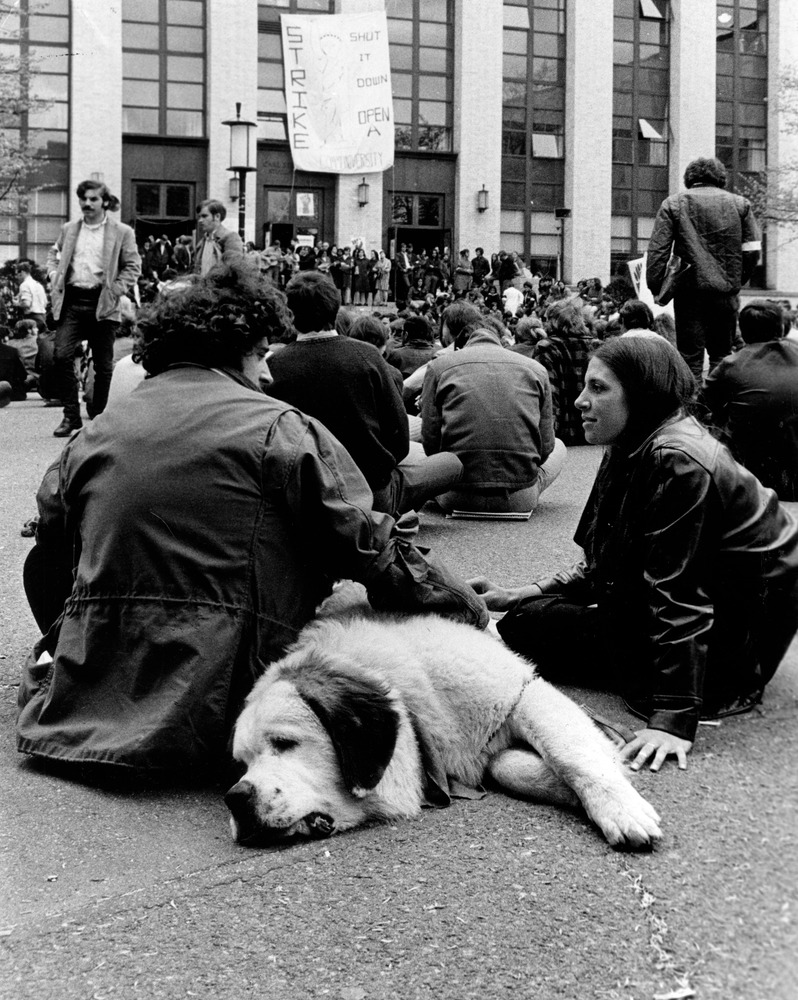
Nineteen days later, on May 4, the Ohio National Guard killed four students and wounded nine others during an anti-Vietnam War protest at Kent State University. The shooting at Kent State University shook the country and led hundreds of colleges and universities to close as students went on strike, including Northeastern.
Shortly thereafter, tensions between students and police escalated to a boiling point. After hearing a report of a large gathering at the intersection of Hemenway Street and Westland Avenue, Rothstein walked from his apartment to the intersection, seeing “at least” 100 tactical patrol force officers in full riot gear.
“There was carnage everywhere,” Rothstein wrote. “Windows and glass doors were smashed. Students and residents were bloodied.”
As reported by The New York Times three days later on May 15, 1970, there were at least three investigations into the raid, which one city official described as the “worst case of police overreaction” in recent Boston history.
Over those few months in 1970, Rothstein said the events of the previous few months “exposed the underbelly of what the police are capable of if you put them under too much pressure.”
Now, in 2024, former Northeastern News editor Len Gamache, a philosophy major and member of the class of 1973, said the role of the police in university demonstrations is still a problem.
“For the most part, the problems we experienced a lot was in overreactions from the university that led to them calling in the Boston Police Department both in Hayakawa and then in the Hemenway Street craziness,” Gamache said. “Hopefully, in this day and age, people are learning that at Columbia and elsewhere, that if you really have to [have a police presence], make sure you really have to do it because it just exacerbates the problem.”
Although the Israel-Gaza conflict and the Vietnam War are distinct issues, a parallel between Vietnam-era student protests and current Gaza solidarity protests is their timing. As was the case in 1968, schools now hold their commencement ceremonies for their graduating class amid ongoing nationwide protests. But Rothstein believes universities should not lose focus on their mission of cultivating dialogue among students.
“I know this is a bad time because everyone’s going to be graduating and nobody wants it all disrupted,” Rothstein said. “But you can’t unfocus the university from what it’s supposed to be doing, which is to teach and to talk and to understand each other. And it’s a big challenge right now, for everyone in our society.”
Editor’s note: This article was updated May 9 at 1:30 p.m. to correctly attribute a quote from the 2021 anniversary edition of the Northeastern News to Accardi. The News had previously attributed the writing to Rothstein.


